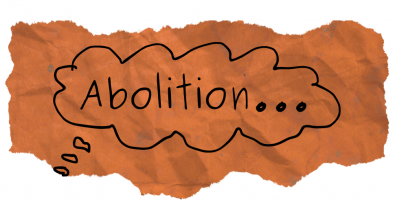The terms “slavery” and “abolition” are widely recognized as referring to the Trans-Atlantic Slave Trade, and the dates that this institution was supposedly abolished.
The history of the slave trade is taught in timelines, locations on a map, resistance movements, and mentions of historically significant figures. While this horrific history is often referred to in conversations around slavery and abolition movements today, it is regarded as a fixed moment in time with a beginning and an end – left in the past.
However, to thoroughly interrogate systems of slavery in its evolving and continuous forms since the 19th century, we must recognize the very real legacies of historical slavery that have permeated society since the days of “abolition.”
Slavery by another name
The Thirteenth Amendment of the U.S. Constitution, ratified in 1865 after the Civil War, is what technically abolished slavery. It states,
“Neither slavery nor involuntary servitude except as a punishment for crime whereof the party shall have been duly convicted shall exist within the United States, or any place subject to their jurisdiction.”[1]
The only form of slavery that the Thirteenth Amendment formally abolished is “chattel slavery” – the form of slavery in which a person is considered the property of another. After chattel slavery was abolished, Black Codes, designed to limit the freedoms of newly emancipated slaves, were weaponized against Black people to keep the yoke on their necks.
Under Black Codes, minor offenses such as loitering and vagrancy were punishable crimes sending Black men, women, and children to prison where they were leased out as unpaid laborers to nearby fields. This new system of forced prison labor thereby replaced the slave labor upon which the American economy had previously relied.
The words “except as a punishment for a crime” is the very legacy that ties historical slavery in the U.S. to modern prison slavery today.
As W.E.B. Du Bois wrote, “The slave went free; stood a brief moment in the sun; then moved back again toward slavery.”[2]
The legacies of slavery take many forms
In many ways, modern slavery looks different from the Trans-Atlantic Slave Trade. Yet, the disproportionate incarceration of Black Americans, the dehumanization, exploitation, coercion for commercial gain, and the abuse of power remain the same.
The United Nations recognizes The International Day for the Abolition of Slavery each year on December 2, so we can focus on the persistent forms of slavery as well as historical ones. To understand the “abolition of slavery” by focusing on current forms of modern slavery may seem contradictory. But it is safe to say that, in many cases, “abolition” is still an aspiration, it is not a fact.
It is our hope that by raising awareness and reinforcing global efforts in combatting forms of modern slavery like forced labor, exploitative child labor, and human trafficking, we may one day be able to say we have indeed abolished slavery once and for all.
How to participate in the International Day for the Abolition of Slavery
- Educate! Learn about modern forms of slavery. See our learn page here
- Sign a petition or send a message! Call for the outlawing of the thirteenth amendment here, or take a look at all of our campaigns and take the actions here
- Commit to ethical labor sourcing! Call out the companies that use forced labor here
- Call on your government! Demand governments to pass laws that always put people before profit here
[2] Exploiting black labor after the abolition of slavery (theconversation.com)







Criminals, especially violent offenders, need more than incarceration. The opportunity to defer their costs while being incarcerated by means of work is not slavery. Indeed, profits from their work should be applied to a fund for the victim’s of crime. This is not slavery, but a form of productive restitution.